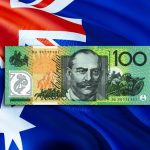Japanese Yen has continued to weaken following dovish remarks from Bank of Japan.
Japanese Yen has continued to weaken following dovish remarks from Bank of Japan (BoJ) Deputy Governor Shinichi Uchida. He underscored the importance of maintaining the current level of monetary easing.
USDJPY pair might constrained as the US Dollar faces its own hurdles.
For the second consecutive day, the Yen fallen against the US Dollar, largely attributed to Deputy Governor Uchida’s comments. He stated that the BoJ would not raise interest rates amid market instability and highlighted the need for the central bank’s interest rate policy to remain flexible in response to market volatility and economic forecasts. Uchida stressed the importance of monitoring the economic and price impacts of their policies, affirming that “we must maintain the current degree of monetary easing for the time being.”While the Yen is under pressure, the potential for gains in the USDJPY pair might be constrained as the US Dollar faces its own hurdles. Market expectations for a significant rate cut in September have increased, with the CME FedWatch tool showing a 67.5% probability of a 50-basis point rate cut by the US Federal Reserve, up from 13.2% last week.
Market Update: Japanese Yen Declines After BoJ Comments.
Japan’s Chief Cabinet Secretary Yoshimasa Hayashi indicated that wage increases anticipated to extend to part-time workers and small businesses by autumn, supported by strong Shunto results and minimum wage hikes. However, he refrained from discussing foreign exchange levels.Japan’s Labor Cash Earnings report revealed a 4.5% year-on-year rise in average income for June, surpassing both the previous 2.0% and the expected 2.3% figures. This marks the highest increase since January 1997. Suggesting a shift towards a rising interest rate environment in Japan.In the US, Federal Reserve Bank of San Francisco President Mary Daly expressed growing confidence. That inflation approaching the Fed’s 2% target. She noted that “risks to the Fed’s mandates are becoming more balanced,” with openness to the possibility of rate cuts in future meetings. Chicago Fed President Austan Goolsbee also indicated the Fed’s readiness to act if economic conditions deteriorate, emphasizing a forward-looking approach.
Minutes from the BoJ’s June meeting highlighted concerns about rising import prices
Minutes from the BoJ’s June meeting highlighted concerns about rising import prices due to the Yen’s recent depreciation, which could add upward pressure on inflation. Some members pointed out that cost-push inflation could bolster underlying inflation if it leads to heightened inflation expectations and wage increases.The BoJ’s Quarterly Outlook Report, released on Thursday, pointed out that wages and inflation could surpass expectations amid rising inflation expectations and a tight labor market.









